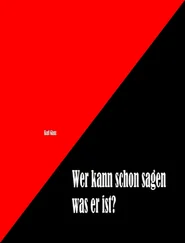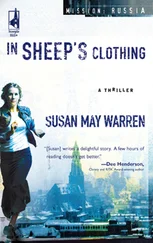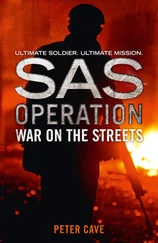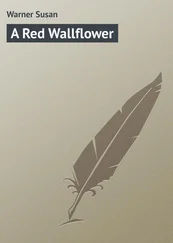Abakov, a blank expression on his face, appeared unconvinced.
“Now let me tell you something,” Abakov said evenly in English. “I’ve been an investigator for almost thirty years. I understand human nature. I learned to think not only with my brain”—he tapped his head with a thick finger—“but also with my eyes. Sometimes the truth is right in front of you and all you have to do is look at it. Sometimes it even jumps up and bites you in the ass. There in Murmansk, in that hotel room, was Admiral Drummond, dead, shot in the head. Lying next to him was the young sailor, Andre Radchenko, also dead. Admiral Drummond had in his hand the pistol used to kill the young man and himself. What the report doesn’t say is that the two were found lying very close together, embracing, you might even say. Each had a hand on the other’s genitals, more or less, rigor mortis being what it is.”
Alex put a hand to her mouth.
“Experience told me that these two had had a gomoseksualist—homosexual—encounter. But something went wrong. Perhaps they had had a lovers’ quarrel. It happens all the time. Or perhaps Admiral Drummond realized that one day he would return to his wife and couldn’t bear the thought of losing his young male lover.”
“Nonsense,” Alex said. “None of that fits the Frank Drummond I knew. What you’ve described is totally out of character.”
Abakov’s gaze fixed on Alex. At length he said, “Dear lady, you were intimate with Admiral Drummond?”
“What do you mean by ‘intimate’?”
“Did you have sexual intercourse with him?”
Alex started. “Of course not. Our relationship was strictly business.”
“Then how do you know he wasn’t gay or bisexual?”
“A woman can tell.”
Abakov shrugged dismissively. “Of course.”
“I want to view Drummond’s body before it’s prepared for shipment to the States,” Scott said. “Alex?” She nodded faintly.
“Can you make the arrangements, Colonel?”
Abakov looked exasperated.
“What’s the problem?” Scott said.
“The problem, Captain, is that my department lacks manpower. The few men I have are overworked. Visiting a corpse uses up time better spent solving crimes. I myself have not been home for supper in a week and my children have forgotten what I look like. My wife is not, as you Americans would say, a happy camper.”
“Sorry,” said Scott.
“Sorry, yes.” Abakov pointed to a stack of case folders on his desk and on the floor. “The FSB has a backlog of these and not enough men to handle them.” He picked up a file and slapped it with the back of a hand. “Here, for instance. We’ve had to send a team to St. Petersburg to find an FSB officer who has been missing for several days. We have no idea what happened to him. On top of that, there was also a mafiya shoot-out in St. Petersburg in which a man ended up dead, another perhaps badly wounded, but we don’t know for sure. It appears the dead man was a member of Ivan Serov’s organization, which has links to Alikhan Zakayev, who we believe was behind the bombing of the Tchaikovsky Concert Hall. The pressure from the Kremlin, to say nothing of your Secret Service, to find Zakayev before the summit opens is unrelenting.”
“He’s your number one suspect?” Scott said.
“Yes. He’s a monster who enjoys killing Russians. Can you imagine killing a thousand innocent civilians? The sooner we find and capture him, the sooner we can end this nightmare of terrorism.”
“Any leads on his whereabouts?” Scott said.
“All we know is that where one finds Serov, one often finds Zakayev.”
“Interesting. What do you make of the fact that Zakayev may have been in St. Petersburg?” Scott said.
“At the moment, nothing. In any event, I am eager to wrap up this Drummond business,” Abakov said, shifting subjects. “After all, we don’t want something like this unfortunate incident in Murmansk to affect U.S. Russian relations.”
“My thoughts exactly,” Scott said.
Abakov jammed the ushanka on his head and reached for the phone. “I’ll let the morgue know we are coming.”
A 9mm slug had furrowed Zakayev’s left forearm just below the elbow. The girl had fussed over him until the painkillers made him drowsy and he fell asleep. He awoke hungry and in pain. While he ate, the girl demonstrated by poking a finger through a bullet hole in the sleeves of his cashmere topcoat and suit jacket, both stiff with dried blood, the track the bullet had taken.
“Get rid of them,” Zakayev said. “Your fur coat too.”
The girl tied everything in a bundle and took them into the work area of the car repair shop for disposal.
He had no recollection of having been shot. Only later had he discovered that his clothes were wet with blood. After he’d been stitched up by one of his men, the pain had set in. He was familiar with bullet wounds: He’d been shot twice by Russian Spetsnaz in Grozny and had the ugly red scar tissue to prove it. There was no way to know for sure, but he wanted to believe that it had been Serov who shot him.
It had been a setup from the start. No one could be trusted now, not even the Brotherhood. The girl was sure she’d shot Serov, but even if she had, he might still be alive and plotting another trap. Still, Serov would have a mess to deal with in the aftermath of the shoot-out that could only be cleaned up by bribing members of the St. Petersburg militia and editors and journalists at newspapers and TV stations.
bribing members of the St. Petersburg militia and editors and journalists at newspapers and TV stations. He would also have to deal with an FSB already on high alert for terrorist and criminal activity, scouring the city for the missing bull. The thought of Serov feeling heat from the authorities made Zakayev feel better.
The girl returned and watched while Zakayev changed into a nondescript outfit that made him look like a uchitel—a teacher—perhaps from some small, provincial technical school. He shaved off his pencil mustache, donned a ushanka, and wound a wool scarf around his neck to complete the transformation. The girl, in boots, leather pants, and bulky sweater, would pose as one of his students.
Zakayev heard the hiss and crackle of a transceiver. The man with the black headband who had savaged the bull entered the shop’s small office that had served as Zakayev’s temporary headquarters.
“Anything?” Zakayev asked.
“Not yet, General,” said the man. “There’s been no sign of Serov or his men. We checked everywhere, even the hospitals. Maybe he’s dead.”
“You’ve done well,” Zakayev said. “But Serov is like a cat with nine lives. I have a feeling we’ll hear from him again.” He looked around the squalid quarters. “Tell the others we’ll be done soon.”
The man and his crackling radio departed. The girl helped Zakayev pack a small black suitcase with wheels and a retractable handle. Inside were outfits he’d wear later. She had packed her own things in a red nylon backpack similar to those favored by college students the world over. When they were finished, Zakayev summoned his men.
His eyes roamed their faces. They had taken a blood oath to avenge the brutal slaughter of their families in Chechnya and to prove their unquestioned loyalty to him. They had fought at his side, shared the hardships and tragedies the war in Chechnya had unleashed, and together had killed scores of Russian soldiers.
Zakayev recalled an incident during which he and his men had seemingly been driven mad by their unquenchable lust for revenge. He had sucked the coppery taste of blood from the stump of a tooth shattered by the butt of an assault rifle slammed against his face. He spat blood in the Russian’s face before driving the butt of his own assault rifle into the soldier’s guts, then watched the man choke to death on his own vomit. Zakayev, bleeding from his mouth, head swimming from the blow to this face, leaped over a crumbled wall that once had been part of a house in a small village outside Grozny and, with the girl at his side, took cover.
Читать дальше












